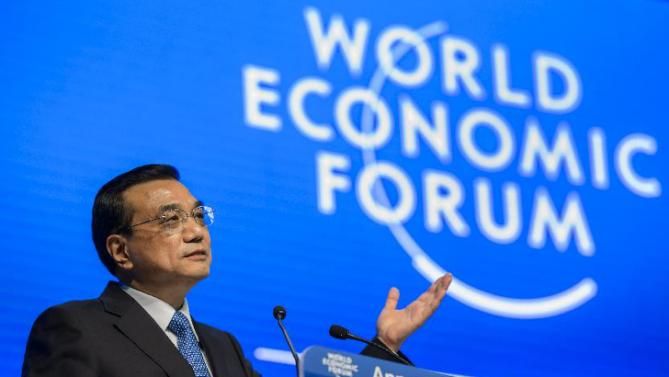Chinese Premier pledges low-carbon growth at World Economic Forum
China’s Premier has pledged to cut the percentage of fossil fuel in China's energy mix while scaling up the use of renewable energy and clean technologies

China’s Premier has pledged to cut the percentage of fossil fuel in China's energy mix while scaling up the use of renewable energy and clean technologies.
Li Keqiang was speaking at the World Economic Forum in Davos, Switzerland and outlined his commitment to increase the share of non-fossil fuels in primary energy consumption to around 20 per cent by 2030.
The world's most populous country and its largest emitter has been taking steps to curb its environmental impact, which has seen major cities paralysed by smog from coal burning power plants and factories.
Li said reducing the proportion of coal use will be a major focus for the government which is determined to promote clean coal technology.
The Premier called on developed nations to export more clean technologies and products to China as the government looks to increase low carbon investment.
Li said: "We will spare no efforts to pursue low carbon development," and he reiterated the idea of common but differentiated responsibility - that developed countries should cover a larger share of the costs of fighting climate change.
Li’s comments came as Microsoft founder Bill Gates also addressed the topic of supporting developing nations to counter the effects of climate change.
Gates argued that access to affordable, low-carbon energy sources is vital for future growth of developing nations.
The Bill and Melinda Gates Foundation released a statement timed to coincide with the Davos meeting and Gates stressed that more urgent action on environmental protection is vital to the success of global development efforts.
The statement said: "The most dramatic problems caused by climate change are more than 15 years away, but the long-term threat is so serious that the world needs to move much more aggressively - right now - to develop energy sources that are cheaper, can deliver on demand, and emit zero carbon dioxide. The next 15 years are a pivotal time when these energy sources need to be developed so they'll be ready to deploy before the effects of climate change become severe."
Meanwhile, Japan has revealed plans to invest 81 billion yen (£450m) in energy storage technologies alongside a 93 billion yen (£520m) fund for energy efficiency measures including light-emitting diode lamps and efficient boilers.
The market for energy storage technologies is expanding rapidly due to the solar power boost seen in Japan over the last year, with about 8GW of capacity coming online in 2014, mostly in the form of residential installations.






